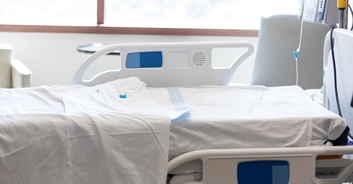This weekend, on Sunday, December 9th, a Texas-bound flight was forced to turn back to Seattle-Tacoma International Airport almost halfway through its journey when a human heart was discovered on board.
The organ was supposed to have been left in Seattle after a previous flight from Sacramento, but someone had forgotten to unload it.
According to Southwest spokesman Dan Landson, Southwest flight 3606 eventually landed back at Sea-Tac after about three hours in the air, and the "life-critical cargo shipment" was removed from the plane.

He noted that Southwest made the decision to make a U-turn because it was "absolutely necessary to deliver the shipment to its destination in the Seattle area as quickly as possible."
However, the initial announcement about what was going on caused panic on the flight.
At first, many people were confused about why a human heart was being transported on a commercial passenger flight, as it is rather unusual. Other organs such as kidneys are flown on passenger planes, but hearts tend to go by private couriers because they do not remain viable outside the human body for very long.
Indeed, when some passengers on board researched how long a heart could survive in transit, they were worried to find that it was usually only four to six hours. According to one passenger, this information sent some passengers into even more of a frenzy, as they were concerned that someone wasn't going to receive the organ they so desperately needed.

Thankfully, the heart arrived back in Seattle while it was still in a usable state and there was no specific recipient waiting on it. Deanna Santana of Sierra Donor Services in Sacramento confirmed this, saying, "The most important part is that no one was waiting... Despite the detour, all is well".
Passengers had mixed reactions upon hearing the news; some were relieved to find that nobody had suffered as a result of the delay, but others were angry that they had been turned around for something that actually turned out not to be much of an emergency. In theory, the plane could have still made it to Dallas with time enough to spare for the heart to be sent back.
"As it turns out, there was nothing critical about the shipment," said one passenger, who didn’t get home to New Orleans until the next day because of the delay. "The shipment may as well have been a suitcase."

Valves from the heart were removed and placed in a tissue bank, and will be viable for use for a long time - so someone will still benefit from the organ. The family of the deceased donor claimed they were grateful to hear their loved one's heart would still be put to good use.
It is not yet clear whether those on the diverted flight will be compensated for their inconvenience, nor whether the person or people responsible for the original mishap faced consequences for the potentially life-threatening mistake.








